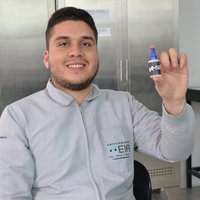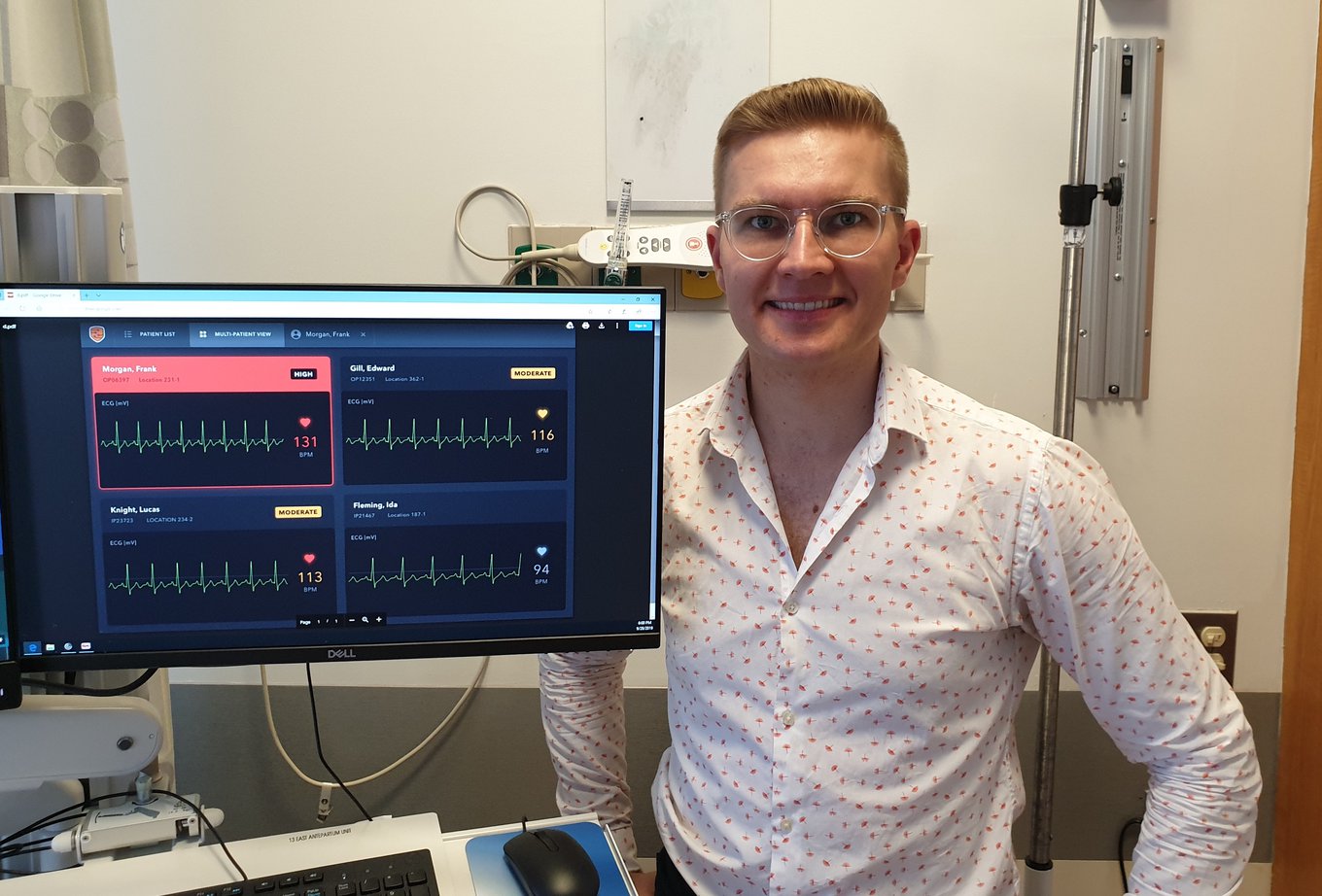The main cause of death in the European Union are circulatory system diseases, according to Eurostat. The most frequent causes are ischemic heart diseases, such as heart attacks and anginas as well as cerebrovascular diseases. On average, heart diseases alone caused 127 deaths per 100,000 inhabitants of the 28 in 2015.
To reduce these figures, former CERN researcher and PhD in Physics from the University of Cambridge, UK, Marek Sirendi, has created the CodeRhythm algorithm. It consists of a software that monitors chronic patients in hospitals to prevent them from suffering cardiorespiratory arrest and to enable professionals to anticipate the use of the defibrillator. The life-saving potential of this invention has earned this young innovator the recognition as one of the winners of Innovators Under 35 Europe from MIT Technology Review.
After his visit to the Swiss center, he and his team thought about taking the knowledge they acquired there into other areas. The young man explains, "If we apply them to the medical field, we can do something new, something different that has not been done before." Thanks to this knowledge, Sirendi co-founded and now runs Transformative, the company responsible for the algorithm.
The Estonian explains, "We want to be able to accurately predict and warn the hospital's clinical team. With this technology we can identify 87% of patients going into cardiorespiratory arrest." To achieve this detection capability, the algorithm uses machine learning and CERN's own analytical techniques. As it knows the patient, the software is able to detect minimal changes that predict cardiac arrest. In this way, the defibrillator can be used at crucial times to prevent death or major neurological failure.
CodeRhythm focuses on the early stages of ventricular tachycardias, one of the most common causes of cardiorespiratory arrest. In the patient's electrocardiogram, the algorithm is set to track changes in heart rate, ectopic beats (changes in the normal heartbeat), and intervals between beats. Sirendi details the process: "We send it to the cloud, pass it through our algorithm, and return the prediction to a separate screen. We literally monitor patients at all times in order to obtain all the data." The equipment aims to monitor the electrocardiogram of chronic patients admitted to the hospital, but the overall objective is that the algorithm should also be used outside these centers, by means of wearables or implants.
Transformative is made up of a diverse team of cardiologists, data scientists, and medical researchers. They have not only partnered with hospitals in Estonia, but also in the United States, Finland, and South Korea, to collect data. The monitored results will also be used to create new drugs that prevent the ventricular tachycardias that anticipate cardiac arrests.
In the future, the team hopes the algorithm will learn to predict fetal distress in high-risk pregnancies and epileptic seizures. In the meantime, it is seeking more funding and wants to hire more people. The young man concludes: "We are already getting very good results with the algorithm, but we want to reach patients and change their lives as quickly as possible."
Joan Bigorra, Director of Strategy and Innovation at the Global Health Institute in Barcelona, Spain and member of the Innovators Under 35 Europe 2019 jury, believes that the system proposed by Sirendi "has the potential to become a turning point in the prevention and management of heart attacks as well as many more problems in the future."
By José Manuel Blanco
Translation: Brian Bostwick




